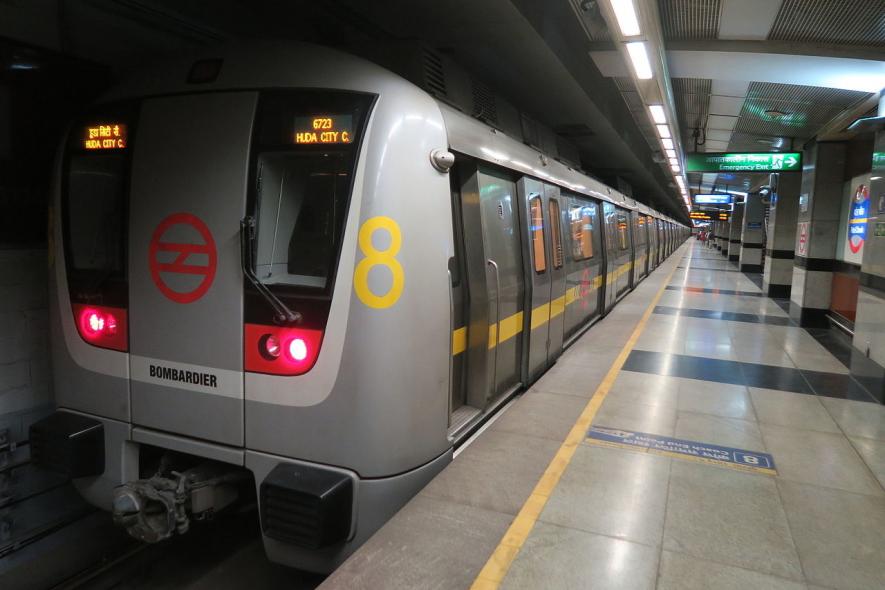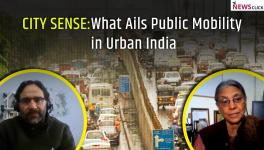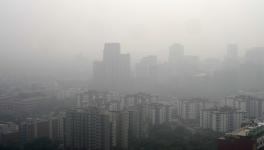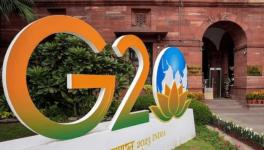Why Delhi Needs to Stop Seeing the Metro Just as a Utility to Earn Profit

There is some good news happening around the world for those who cheer for public transport and for improving the air quality around them. The Germans have shown the way,their government has decided to make public transport free for its citizens in their cities.
The primary reason for such a move is the rising air pollution in their cities. Some of the German cities are witnessing rise in air pollution especially that by Nitrogen oxides. Though the levels are far low than India but the sensitivity of the people is far high which has forced the ruling dispensation to think in a different way. Even the European Union has laid down similar urban air quality regulations. The courts in Germany were also independently mulling imposing a driving ban on diesel vehicles in some of the worst affected cities.
The public transport in Germany is predominantly run by the city governments in the urban centres. The Federal government is also planning to support the cities financially for such an action (for free public transport). The experiment will be kickstarted in five model cities with small scale experiments for its effectiveness.
There is definitely a voice rented by a section of the German transport companies over the economic viability of free public transport. It is estimated that a revenue of over $ 15 billion (₹ 95.8 lakh crores) each year will be lost from ticket sales. Hence a firm financial footing is required to ensure that the cities are saved from the hazards of pollution. The Germans have decided to not to look back and continue with this reform and ensure that their public transport is strengthened.
The case with Indian cities is far more precarious as far as air quality is concerned. The cities in India have one of the worst air ambience in the world. There are eight cities from India out of the worst twenty in the world when the air quality is the parameterized. The air ambience has become toxic. There have been several ways in the past suggested to improve the air quality. Good fuel, good combustion engines, etc. but all in vain as far as improving air quality goes it has in fact tilted towards the worse.
There is a direct link in between the deterioration of air quality in the cities and the rise in automobiles. The solution is incredibly simple. Either allow the air ambience to deteriorate or reduce the number of automobiles in the cities. If the automobiles (the predominant private form of transport) are to be reduced then the only viable solution is strengthening of the public transport. Unfortunately, the public transport is considered as a utility to make profit. Such a view of structuring the utility will not serve the purpose in the long run. The importance of it lies in not just reducing the carbon footprint but also in reducing pollution in the surroundings. This is hardly taken into consideration.
The road infrastructure in the cities is being subsidised for facilitating more cars on the roads. Public transport is not being discussed seriously. There was some discussion in the Jawahar Lal Nehru National Urban renewal mission (JNNURM) when some BRTs and such other corridors were developed but soon were abandoned in a majority of the cities.
Delhi has an excellent infrastructure of the Delhi M etro. The infrastructure is being further expanded to reach to the left-out areas. This is good planning. But the way Delhi metro is seen as a utility to earn profit has thrown a lot of people out from it.
The metro fares were increased substantially twice in the interval of 6 months, the last one in December 2017, doubling the fares. According to an RTI report, after the last fare hike, 3 lakh commuters have moved out of the Metro. The pinch of the hike has been felt most by the lower middle class, working class, and students. The short distance commuters have been the hardest hit, as their fares have risen most steeply. Just to remind, the fares when Metro started were Rs 2 minimum and Rs 8 maximum, which have now reached Rs 10 and Rs 60 respectively.
While mass public transport, of which Metro is the major one, is being penalised through such arbitrary fare hikes, what is completely lost sight of the rapidly worsening air quality in the city. Delhi is now notorious for having one of the worst air quality as a metropolis. This is the direct result of the huge number of private cars in the city. It can be controlled only if we strengthen mass transport, encourage people to use cycles and walk. This means strengthening public transport, increasing cycle tracks, and providing footpaths. The urban authorities in Delhi do not seem to understand that when we look at the city and its citizens, we need to look at it in its entirety, and not piecemeal as is being done.
The metros all over the world are subsidized, as it reduces congestion and is far less polluting per passenger-kilometre travelled than other forms of mechanised transport. The social good that it provides to the city must be taken into consideration, when deciding fares for such public transport.
It is this perspective that is completely missing in the fixation of fares in the Metro. The fare fixation committee of the Delhi Metro Rail Corporation (DMRC), assigned the task of deciding the fares of over 3.5 million commuters does not even have a single public representative. The fares have been enhanced arbitrarily. Further, automatic annual fare revisions of 7% is sought to be enforced.
It is high time that the residents in Indian cities learn from their fellow world citizens in Germany about reclaiming their rights in their cities. The most essential one being the essence of life- good quality air.
Get the latest reports & analysis with people's perspective on Protests, movements & deep analytical videos, discussions of the current affairs in your Telegram app. Subscribe to NewsClick's Telegram channel & get Real-Time updates on stories, as they get published on our website.
























